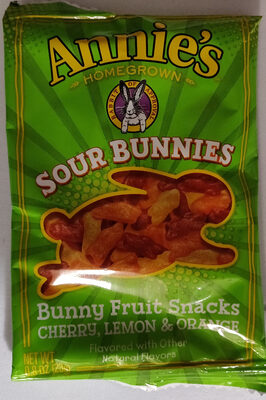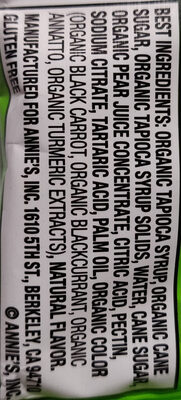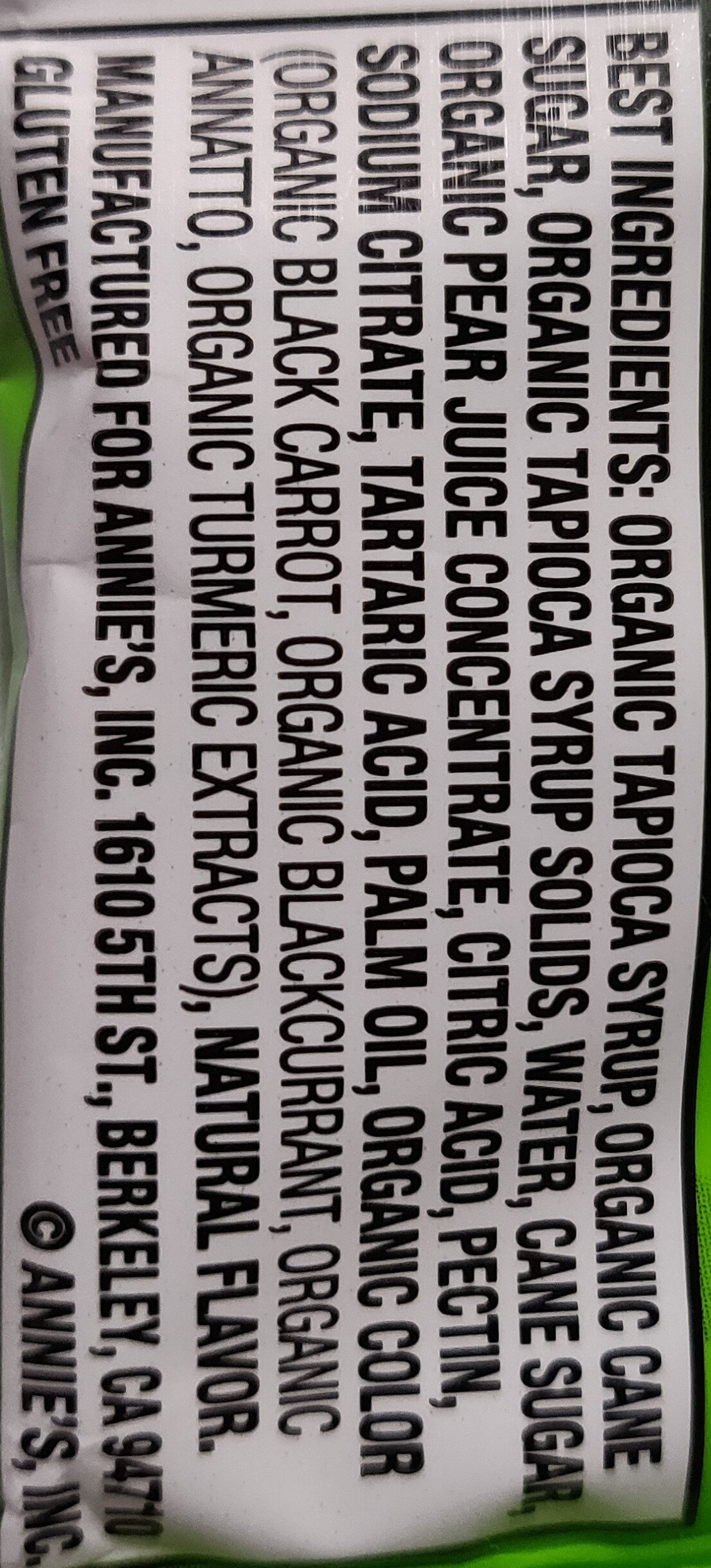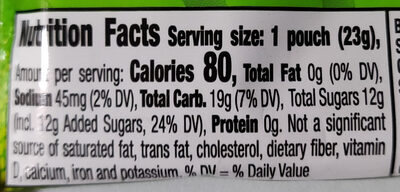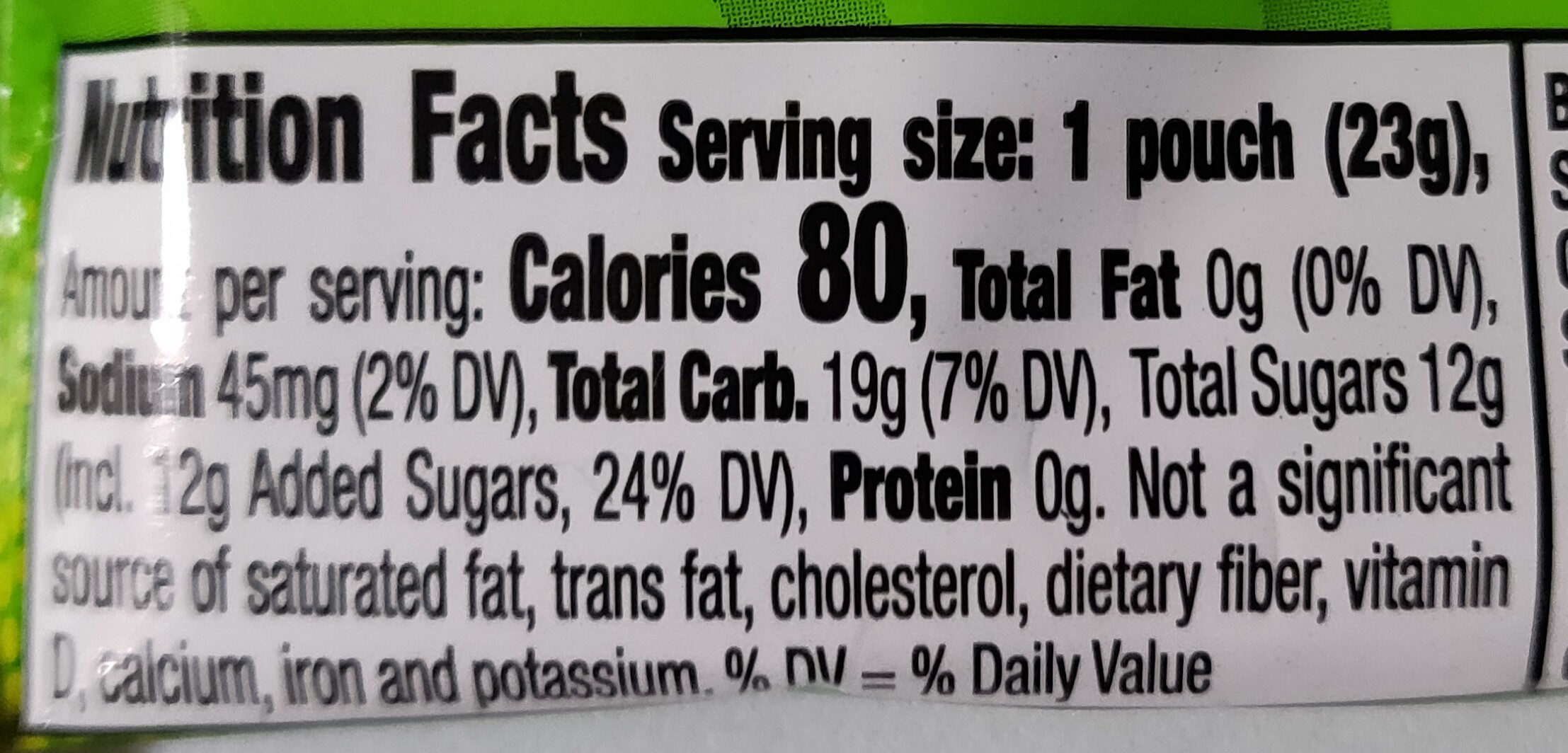Annie's Sour Bunnies Bunny Fruit Snacks - Annie's homegrown - 23 g
This product page is not complete. You can help to complete it by editing it and adding more data from the photos we have, or by taking more photos using the app for Android or iPhone/iPad. Thank you!
×
Barcode: 0013562108626 (EAN / EAN-13) 013562108626 (UPC / UPC-A)
Quantity: 23 g
Packaging: Bag, Individual bag
Brands: Annie's homegrown
Brand owner: GENERAL MILLS SALES INC.
Categories: Snacks, Sweet snacks
Labels, certifications, awards: No gluten
Origin of ingredients: États-Unis
Manufacturing or processing places: États-Unis
Link to the product page on the official site of the producer: http://Annies.com
Stores: Whole Food
Countries where sold: United States
Matching with your preferences
Environment
Packaging
Transportation
Threatened species
Report a problem
Data sources
Product added on by sandrine-chappet
Last edit of product page on by packbot.
Product page also edited by kiliweb, openfoodfacts-contributors, org-database-usda, roboto-app, yuka.RnFjOERxaytoOTB2d1BjaTdDN2YwZFZQMzRHbFowcXZOZUU3SUE9PQ.
